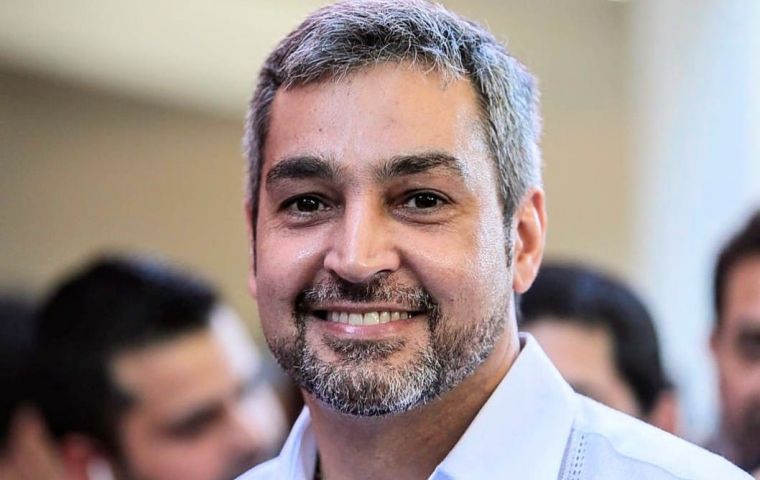
ASUNCION, Dec 11 (NNN-MERCOPRESS) — Paraguay’s National Anti-Drug Secretariat (Senad) decided to break off from its partnership with the United States Drug Enforcement Administration (DEA), according to Minister Jalil Rachid.
In a note, Rachid said the move stemmed from the need to optimize resources and strengthen operational areas.
“The institutional decision to terminate the program responds to the need to optimize the redistribution of operational personnel and strengthen other operational areas,” the three-page document specified after a long description of the understanding being terminated.
However, the exact scope of Paraguay’s unilateral decision is yet to be fathomed given that no Government source mentioned any detail. According to local media, not even Paraguayan National Police Chief Carlos Benítez was aware of the plan undertaken by the Government of President Santiago Peña.
The person who did speak about the measure was former President Mario Abdo Benítez, who expressed his doubts about the real motives behind this decision.
Since 2008, Paraguay and the United States have worked closely in tackling drug trafficking and organized crime through the DEA-sponsored Sensitive Investigation Units (SIU), which not only allowed for joint intelligence operations but also guaranteed essential technical and financial support to confront transnational criminal structures.
Abdo, who supported these alliances during his term in office, stressed that “organized crime transcends borders” and that international cooperation is key to combating it. He also noted that the SIU, under the Senad, played a crucial role in investigations that uncovered links between police officers and organized crime. All of that is now at risk of being diluted by the transfer of the SIU to the National Police, an institution that has historically been permeated by corruption.
The former head of state hinted that the recent sanctions imposed by the US State Department on Paraguayan political figures, such as former President Horacio Cartes (Peña’s mentor and still Chairman of the ruling ANR), who was declared “significantly corrupt,” as fears of possible future sanctions against other political leaders mounted in Asunción. In Abdo’s view, suspending cooperation with the DEA could negatively affect the international perception of Paraguay as a reliable strategic partner and could open the door to economic sanctions or political restrictions affecting both the country and its leaders.
In addition, the transfer of the SIU to the National Police raises questions about the institution’s ability to handle sensitive investigations without internal interference or conflicts of interest. “The results will be seen over time,” Abdo warned.
Besides Paraguay, Venezuela has severed ties with the DEA for investigating the “Cartel of the Suns” allegedly headed by President Nicolás Maduro and military officers within his closest circle, such as Defense Minister Vladimir Padrino López. Maduro and other high-ranking Venezuelan leaders face criminal charges in the United States for their alleged links to drug trafficking.
Bolivia too suspended cooperation with the DEA during the Evo Morales administration, reportedly because of the involvement of several Bolivian politicians. Morales claimed the agency represented foreign interference and claimed that the fight against drug trafficking was used for political ends.
Uruguay has also had its ups and downs with the DEA but always on the same side. The US Government agency used to have its headquarters in Montevideo between 2012 and 2019. As per the latest agreement, Uruguay and the DEA are still working together against drug trafficking involving DEA agents stationed in Buenos Aires, who travel frequently to Uruguay. — NNN-MERCOPRESS





